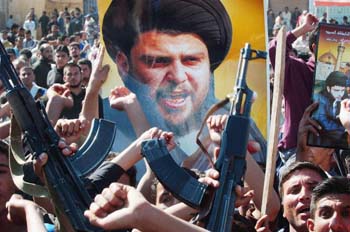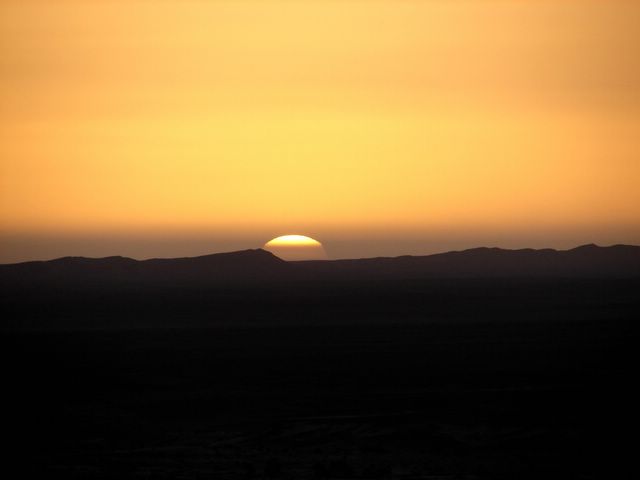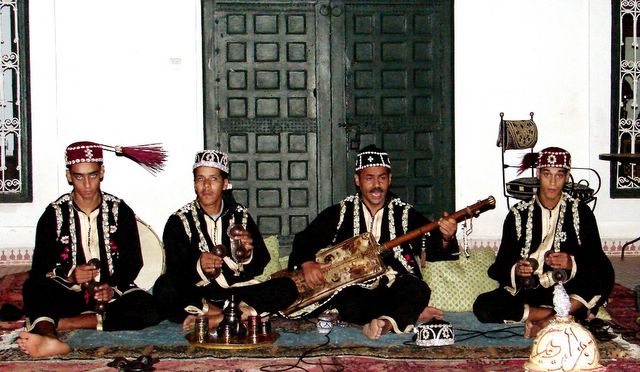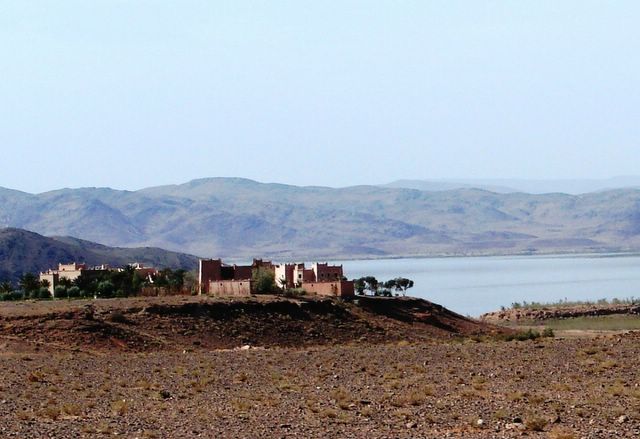Iraq: The Next Problem; Same as the Old Problem
.
 As soon as the new Iraqi government, likely to be led by Ibrahim Jafari, is in place, a familiar name will come back to make headlines. Moqtada Sadr, the radical Shiite cleric who led a bloody revolt against U.S. troops last year, will demand that the new government ask for the complete withdrawal of U.S. forces from Iraq. Although Jafari says that U.S. troops are necessary until the security environment in Iraq improves, calls for a U.S. withdrawal will likely rage sooner than some think.
As soon as the new Iraqi government, likely to be led by Ibrahim Jafari, is in place, a familiar name will come back to make headlines. Moqtada Sadr, the radical Shiite cleric who led a bloody revolt against U.S. troops last year, will demand that the new government ask for the complete withdrawal of U.S. forces from Iraq. Although Jafari says that U.S. troops are necessary until the security environment in Iraq improves, calls for a U.S. withdrawal will likely rage sooner than some think.Let us not forget that Jafari’s United Iraqi Alliance, the winning coalition in the recent election, ran on a 22-point platform which includes a demand for "a timetable for the withdrawal of the multinational forces from Iraq." This is something the U.S. president in his State of the Union speech said would be unacceptable. He said: "We will not set an artificial time table for leaving Iraq, because that would embolden the terrorists and make them believe they can wait us out". In response, Sadr declared that he sees the legitimacy of the new government resting on whether or not foreign troops remain in Iraq. He said: "If elections open the door for the occupier to leave Iraq then it is a good thing. But if that is not the case, it will not have a real effect on the country or on Iraqis". Who is Moqtada Sadr and why should the U.S. be concerned?
He is the youngest son of Muhammad Sadiq Sadr, a senior Shiite cleric who was assassinated in 1999 by the Saddam regime. Moqtada Sadr mixes both Iraqi nationalism and Shiite radicalism, making him a figurehead for many of Iraq's poor Shiite Muslims. His impact on the young and angry segment of the Shiite population is similar to that which Malcom X had on Black Moslems in Harlem in his early days as the spokesman of the Nation of Islam. He knows how to communicate anger. He knows what to say to get people ready to fight, convinced that their cause is just and that their means are necessary.
Many in the West have labeled Sadr a ‘thug’ or even a ‘terrorist’. But before they do this time, they should remember that the U.S. occupation remains unpopular in Iraq and someone like Sadr can cause U.S. troops a lot of problems. This is the leader of an army of dedicated fighters, (the Mahdi Army) with loads of both religious and nationalist zeal. This is the only Shiite figure who is celebrated in the heartland of the Sunni insurgency; the only Shiite whose portrait was paraded by insurgents in Fallujah. For those who take the time to read the graffiti that litters Iraqi cities, the writing is literally on the wall.
Furthermore, unlike last time, the influential Ayatollah Sistani can not and will not contradict Sadr. There is no way Sistani will openly disagree with Sadr on the issue of foreign troop presence in Iraq. Therefore, Sadr’s militant and potentially violent stance on demanding the withdrawal of US troops will force the new Iraqi government to ask the U.S. for at least a timetable. If it does not, the Shiite coalition will face a break up within its ranks and the insurgency will widen beyond its present scope.
The problem with American policy is that it often ignores some of the most basic truths about the environment in which it operates. The idea of being 'occupied' makes people, especially in the Middle East, feel shamed and undegnified. Regardless of the progress made in building democratic institutions in Iraq, so long that the 'occupation' continues, the likes of Moqtada Sadr will continue to attract willing volunteers and sympathizers among Iraqis.
Although concerned, we should also be reminded that on 30 January 2005, scores of Iraqis decided to show tremendous courage under fire and participate in their first ever democratic election. One hopes that the grass is greener from here on, but let us also be realistic and try to forego more conflict before it erupts.
See Also:
.


























3 Comments:
But how to avoid that conflict, considering that the troops are probably not going to withdraw in the immediate future?
February 22, 2005
Very difficult question to answer. This is the story of the chicken and the egg. There are so many intertwined issues that are so closely interdependent, that it is hard to sort out where things start and where they should end. Let me give it a shot anyway.
1. The U.S can start by trying to interact with Sadr and his movement directly instead of demonizing him. Calling him a 'terrorist' is not going to solve the problem. In fact, it is exasperating the problem. Sadr is seen by a lot of Iraqis as well as most of the Muslim World as legitimate resistance. He is, indeed, a radical, but so is Abdul Aziz Al Hakim, the leader of the Supreme Council for Islamic Revolution in Iraq (SCIRI) and member of the Iraqi government.
2. The U.S. has to understand that they can not bring overwhelming force into Najaf and Kabala like they did in Fallujah. Because if they do, they will draw the wrath of the silent majority of Shiites; effectively compromise the legitimacy of moderate voices like Sistani; and possibly cause fighters to flock in from Iran. Then you have a real mess. One thing that is also worth mentioning here is that in Arab culture, when someone is killed, his/her tribe seeks revenge. This exasperates the circle of violence.
3. The U.S. should not be so stubborn about discussing a timeline for withdrawal. They can negotiate a set of performance parameters that would facilitate the removal of U.S. forces. The highest priority for the U.S. is getting Iraqi security forces on the streets and confining U.S. troops to a support role. The other is getting reconstruction projects going so the lives of ordinary Iraqis are improved. The two biggest sources of Iraqi resentment have always been: (a) the visible face of occupation and (b) the lack of results in improving their daily lives (i.e., jobs, water, sanitation, electricity, etc.).
But again, it is hard to have reconstruction when things are blowing up outside and that’s what’s making this so difficult, hence, the ‘chicken and the egg’ analogy.
February 23, 2005
Thank you. That certainly gives something to think about.
February 23, 2005
Post a Comment
<< Home